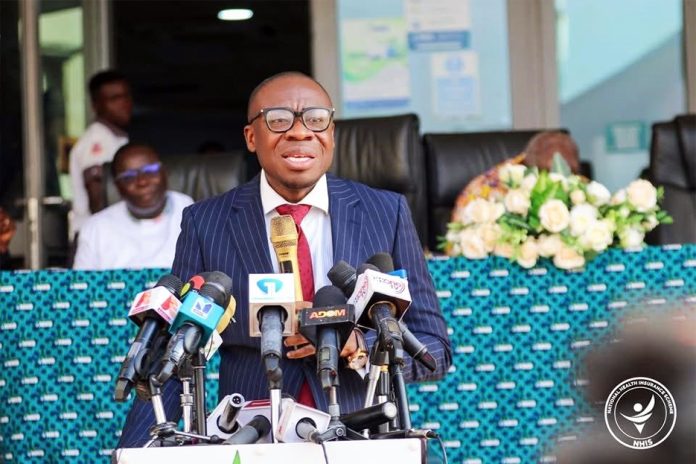The National Health Insurance Authority (NHIA) is set to roll out a Free Dialysis Treatment (FDT) program for all kidney patients, marking a historic milestone in Ghana’s healthcare system.
Beginning December 1, 2024 the program will integrate dialysis care into the National Health Insurance Scheme (NHIS) benefit package, with an annual allocation ranging from GHS 20 million to GHS 57 million, depending on patient enrolment levels.
The Chief Executive of the NHIA, Dr. Da-Costa Aboagye, announced the initiative during a meeting with hospital heads and renal unit in Accra on Tuesday, this week.
He explained the financial modelling and sustainability of the program, assuring stakeholders that the NHIA has the resources to execute the initiative without compromising the scheme’s stability.
“We have carefully projected the numbers. Based on our modeling, the annual cost of the program will fall between GHS 20 million and GHS 57 million, depending on the number of patients accessing dialysis services,” Dr. Aboagye said.
The decision follows a six-month pilot program launched in June 2024, during which children under 18 years and adults over 60 years received eight free dialysis sessions, while adults aged 19 years to 59 years received two free sessions.
The pilot was funded with GHS 4.2 million, including a GHS 2 million parliamentary allocation and GHS 2.2 million from the NHIA’s corporate social responsibility budget.
“The pilot revealed that actual patient numbers were lower than expected, with 400 patients participating instead of the 700 initially projected. This gave us confidence in our financial modeling,” Dr. Aboagye explained.
To ensure sustainability, the NHIA will rely on internal budget reallocations, increased tax revenues and potential uncapping of NHIS funds.
“Even at the maximum annual cost of GHS 57 million, the NHIA can comfortably accommodate the expenditure within our current and projected budgets,” Dr. Aboagye assured.
Additionally, the NHIA has procured 45 dialysis machines and 6,000 sets of consumables to equip facilities nationwide, with support from the Ministry of Health and the World Bank.
The machines will ensure that patients across Ghana, including those in rural districts, can access life-saving dialysis treatments.
To address the root causes of kidney diseases, the NHIA has expanded its benefit package to include preventive services. Ghanaians can now access free screenings for diabetes, hypertension, and other conditions during their birth month.
“We aim to reduce the incidence of kidney disease through early detection and management of risk factors like hypertension and diabetes,” Dr. Aboagye noted.
The government is also working on an organ donation policy and incorporating renal units into the Agenda 111 hospitals to decentralize dialysis care.
Dr. Aboagye emphasised the collective effort required to make the initiative a success.“In unity, we are bringing comfort to our patients. This program is a testament to what we can achieve together,” he said.









